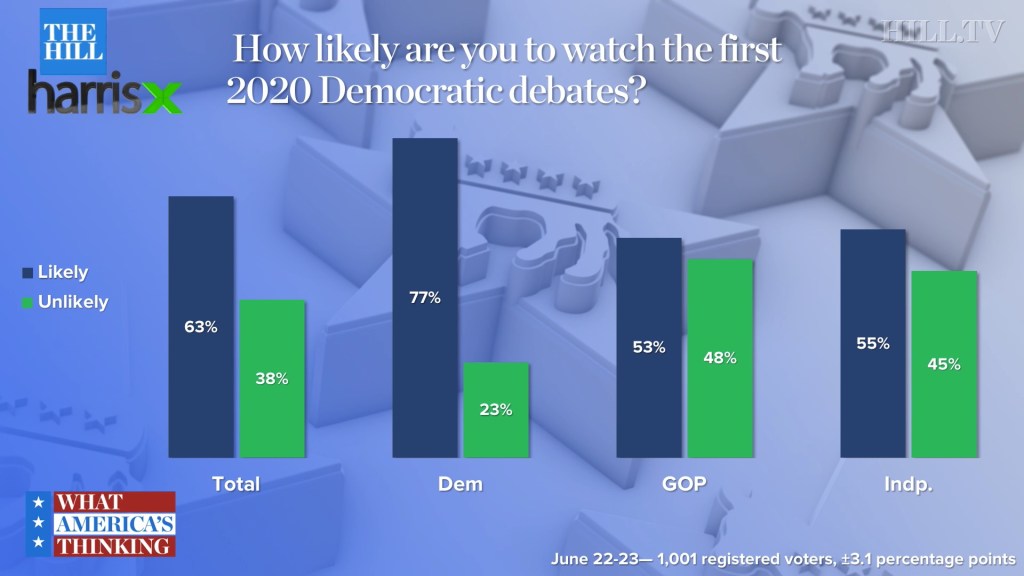The vast majority of Democratic voters say they’ll be tuning in to their party’s first presidential debates, a new Hill-HarrisX poll found.
In the poll, 77 percent of registered voters who identified as Democrats said they are either very or somewhat likely to tune in late Wednesday and Thursday.
Forty-four percent of Democratic participants said they were very likely to watch while 33 percent said they were somewhat likely.
Independent and Republican respondents were somewhat less interested, but a majority of each group said they were likely to watch.
The survey findings underscore the important role that the initial candidate forums will play in the Democratic presidential race.
 Overall, 62 percent of voters said they were likely to view the 2020 candidates face off, including 56 percent of independent participants and 52 percent of Republicans.
Overall, 62 percent of voters said they were likely to view the 2020 candidates face off, including 56 percent of independent participants and 52 percent of Republicans.
The survey also found that younger voters were most likely to say they would tune in, with 71 percent of voters between 18 and 34 saying they were likely to watch.
Sixty-six percent of respondents between 35 and 49 said they were likely to view the debates while 54 percent of participants between 50 and 64 said they were likely to watch. Sixty percent of respondents who were 60 and older said they were likely to tune in.
In a recent Morning Consult poll, Democratic voters said they were most interested in hearing presidential candidates discuss climate change, gun policy, and recent state laws about abortion rights. Only 44 percent of Democrats in that survey said the White House hopefuls should discuss President Trump.
While Democrats may not want to hear as much about Trump tonight and tomorrow, defeating him remains top of mind for them, several recent polls have shown.
A Hill-HarrisX survey of Democratic-leaning registered voters in May found that 65 percent of respondents said they would prefer a candidate who they believed could beat Trump over one who had the same position on an issue most important to them.
The latest Hill-HarrisX poll was conducted June 22-23 among a statistically representative online panel of 1,001 registered voters with a 95 percent confidence level and a 3.1 percent sampling margin of error.
—Matthew Sheffield
hilltv copyright
